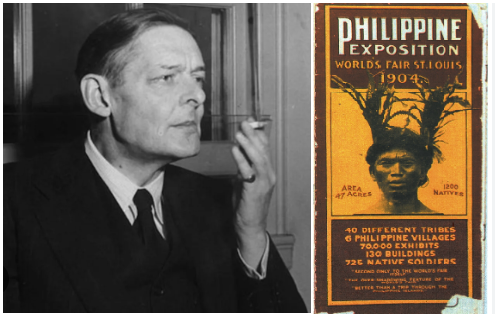It was at this fair that the Igorots first attracted wide attention. The fair had a Philippine section and among its exhibits was a transported Igorot village. Igorots were brought in from the Philippines complete with their traditional attires, equipment, and houses. The Igorot village at the exposition became one of the most popular exhibits there. People were particularly attracted at the seemingly backward clothing and the unique dances of the Igorots. But the most sensationalized aspect of the Igorot village was the butchering and eating of dogs by the Igorots. Dogs were reportedly brought to the village on a regular basis for butchering and eating. The Americans watched and gawked in awe and shock.
It's very possible that T.S Eliot had seen with his own eyes how the Igorots cooked and ate an animal considered by the rest of the world as "man's best friend". Eliot was from St. Louis so he had all the time to explore the exhibits at the exposition. Inspired by the tribal dances and other traditional practices of the Igorots that he saw at the Igorot village, Eliot wrote a short story he titled "The Man Who Was King". This story was published in 1905 in the school magazine of Smith Academy in St. Louis where Eliot was a student. It's about a retired American mariner named Magruder who got shipwrecked and stranded at a remote island in the Pacific. The native islanders found Magruder and he thought they were going to roast and consume him. The islanders made him their new king instead.
"The Man Who Was King" was among Eliot's first published works of fiction. More than a decade later, he became one of the most influential poets of the 20th century. To this day, his works (The Waste Land, The Hollow Men, Ash Wednesday, Four Quartets) remain to be gold standards in the world of poetry. He was awarded the Nobel Prize in Literature in 1945.

